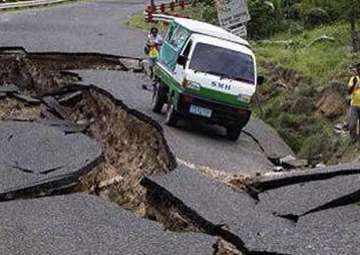Hyderabad: The National Geophysical Research Institute (NGRI) will study the characteristics of the earthquake that struck Nepal on Saturday.
"NGRI is currently operating a network of seismograph stations along the Himalayan belt and our scientists are going to study the characteristics of this earthquake and its aftershocks using seismic data and field mapping in the days to come, with an aim of assessing the seismic hazard level," the NGRI said in a statement late on Saturday.
Mohan Rao, director, additional-charge, NGRI said that knowledge obtained in such analyses will be useful in understanding the earthquake dynamics and identify earthquake prone areas, so that protection measures can be planned. "Buildings can be built at least in the high risk areas to withstand earthquakes," he said.
According to the institute, a earthquake of magnitude 7.4 struck Nepal on Saturday at 11.41 a.m.
It is understood to be a typical Himalayan earthquake caused due to collision of the Indian plate with the Eurasian plate with an overall convergence rate of about 5 cm per year, the statement said.
The earthquake was recorded at the NGRI seismic observatory, and also several aftershocks that followed this event. It is expected that several aftershocks will follow in the days to come.
Earthquakes in this region are quite expected and the largest earthquake of 8.4 magnitude occurred in 1934 on the Bihar-Nepal border which was extremely destructive. The other notable earthquakes of great magnitude in Himalaya are the 1897 Shillong and the 1950 Indo-China earthquake, each of 8.7 magnitude.
The seismic waves due to April 25 earthquake propagated across the Indian subcontinent and was felt in various parts of the country. However, no damage is expected within the Indian peninsula due to these waves, particularly Telangana and Andhra Pradesh regions are safe in view of the large distance from Nepal.
Latest World News
